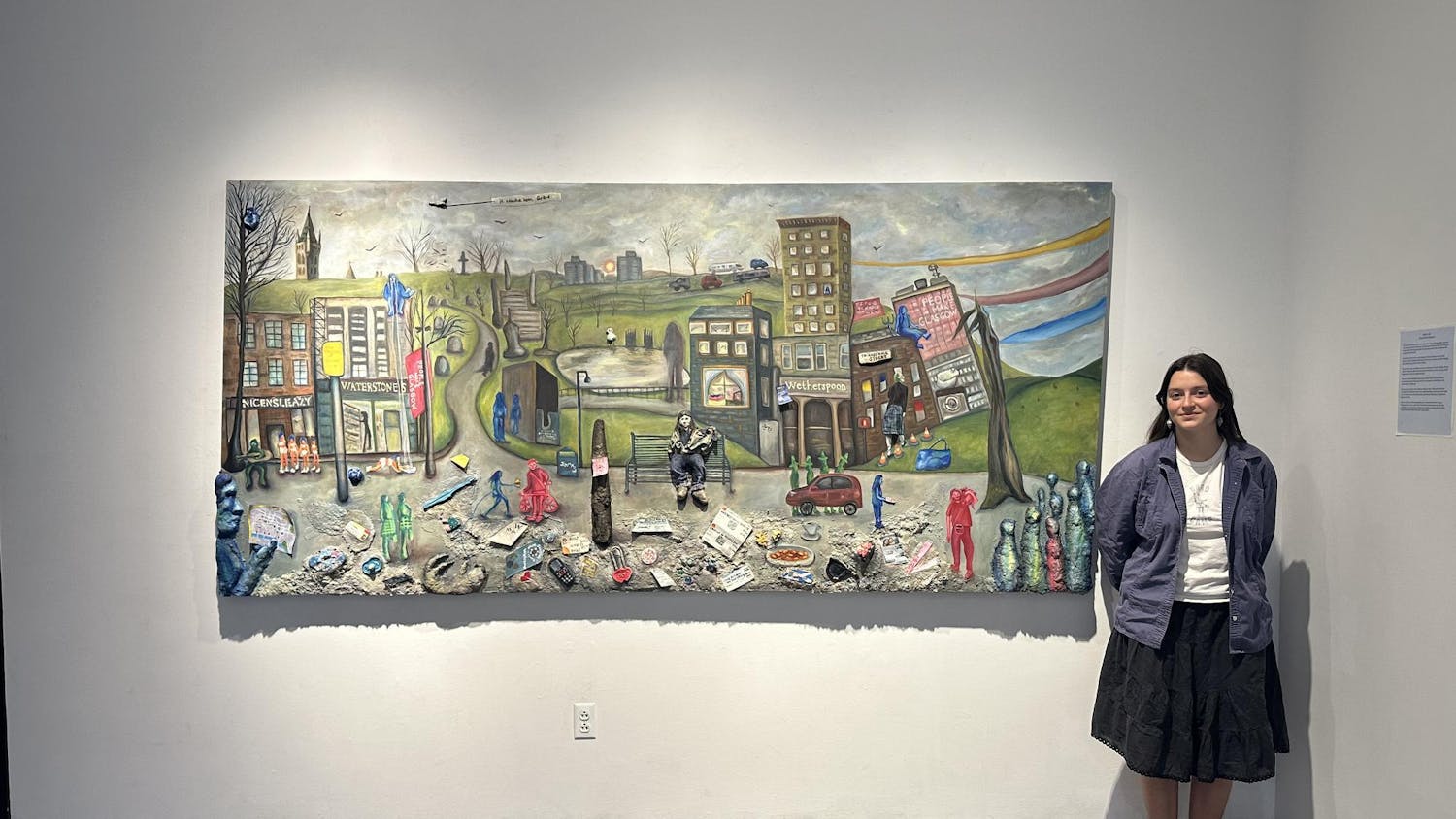Florence and the Machine’s “High as Hope” is an invitation to come closer. This latest album is intimate, raw and unapologetically human. Florence Welch stays true to herself and her previous work: Her haunting voice, dramatic instrumentals and spiritual motifs are reminiscent of past albums. At the same time, her newest work is both stripped down and eruptive. As part of the album tour, Florence and the Machine will be performing in Boston this Friday, Oct. 12.
The album opens with “June,” which features a slow vocal and instrumental buildup. Lyrically, it is a deliberately repetitive opening track. The chorus can be read as an imperative, as it contains only the repeated line: “Hold on to each other.” This is summative of the album, which forms a lyrical journey of healing as listeners are invited to come along.
But just as life has its ups and downs, love and healing are not without their own tensions and uncertainties. The song ends with a low, as she chants, “I’m so high, I’m so high / I can see an angel.” Welch, now two years sober, alludes both to the “high” of love and to her own issues with substance abuse. “Hunger” sounds more upbeat; Welch sings of the ways in which she has tried to satiate an insatiable hunger. She speaks frankly of her overuse of drugs and performance to reach fulfillment. Not everyone suffers from the same issues of excess of which Welch sings. But her lyrics bring to the surface a hunger, a longing, that we can all relate to: “We never found the answer / But we knew one thing / We all have a hunger.” The emotional zenith of Welch’s troubles and musical output might be “Sky Full of Song,” a traumatic and ballad-like acknowledgment of how difficult it is to achieve catharsis and growth. “I thought I was flying / But maybe I’m dying tonight,” she sings.
The album transitions into a much-needed sense of redemption in its second half, however. “Grace” is at once an apology and an ode to the importance of familial relations. The song is addressed to Grace, Welch’s sister, and its lyrics carry poignant double meanings. “Grace, I don’t say it enough,” can be both an apology to a sister named Grace, and a statement about our lack of gratitude and not saying our graces. She sings of her faith in her sister’s love and of her desire for redemption: “This is the only thing I’ve ever had any faith in / Tell me what I can do, I will make it up to you.”
In the album’s entire musical landscape, seemingly incongruent strands of pain and loss come together to lyrically display the complexity of human life. It draws us to what we must wash away, and the kind of love that must end for open and honest love to begin. Welch concludes the album on a melancholic and deeply hopeful note, as she sings, “Things seem so unstable / But for a moment we were able to be still.”
Though musically simpler than previous albums, “High as Hope” conveys emotional depth in its lyrics. Welch touches upon love, loss and redemption in this intimate look at her own life and relationships. Healing is difficult, and there are always lows — but the repeated lyrical motif in “Patricia” seems to hold true: “It’s such a wonderful thing to love.”





